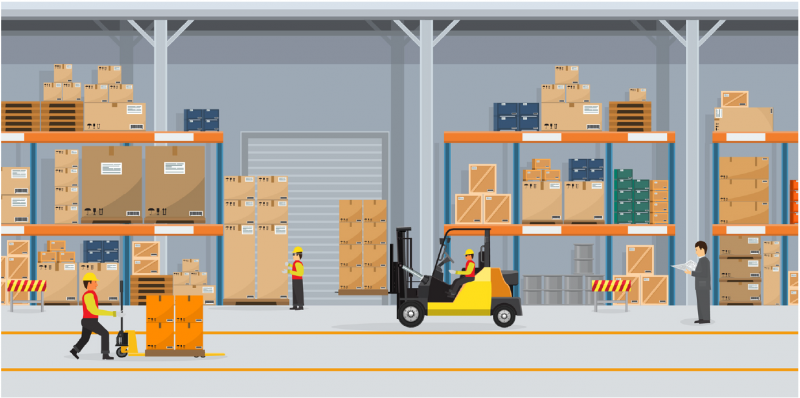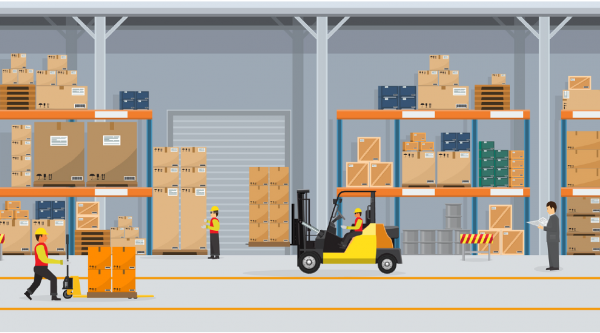
This site
is mobile
responsive
Numerous industries are experiencing disruptions in business operations due to the outbreak of the COVID-19 pandemic. According to the United Nations, the pandemic has wiped US$50 billion off global exports in February 2020. The global industry now faces an increasingly unpredictable global economic landscape due to supply chain disruptions as countries heightened its health and safety measures by suspending in-country deliveries.
In Malaysia, the pandemic and the subsequent implemented Movement Control Order (MCO) undoubtedly created challenges in the market. Non-essential services and offline businesses were ordered to suspend operations to slow the spread of the virus. Incidentally, the retail sector was among the industries most affected. However, the logistics industry, particularly the e-commerce and e-fulfillment activities were declared essential services and therefore were allowed to operate.
This was a vital move as consumers turned to online platforms to shop during the MCO. Goods, especially food and grocery deliveries, were in high demand. This has created abundant business opportunities and some businesses adapted by quickly digitalising their operations to leverage on the new business environment.
The pandemic pushed stakeholders to re-evaluate and re-strategise their operations towards digitalisation. This in turn boosted productivity and enhanced business flow, which are fundamental for long term business sustainability.
GD Express Sdn. Bhd. (GDEX), the well-known Malaysian homegrown courier services company serves as an ideal example of how industries players use digitalisation to cope with the current business climate. Before the MCO, the company had already implemented technology such as Application Programming Interface (API) for its more tech-savvy customers such as Lazada. However, with the movement restrictions and work from home guidelines in place, GDEX introduced a programme to push more of its clients, particularly those that operate in more traditional manners, to adopt digital platforms as part of their business model to minimise service disruptions and increase efficiency.


By April 2020, the company’s volume of goods delivery had gone up sevenfold, and in May 2020 it increased further. Not only did the digital transformation of GDEX’s existing 50,000 corporate customers accelerate, it also created a more resourceful way to recruit delivery personnel to come on board as freelancers due to the available delivery volume. Approximately 10,000 deliveries per day were performed within less than a month after the programme’s introduction. Ultimately, this illustrates how GDEX has strategically utilised technology to support the surge in demand for its services seamlessly.
Given the imperative role of technology during the pandemic, logistics companies are compelled to recognise the importance of technology advancement and adoption. This is in line with the growing demand for more services, faster and cheaper shipping, as well as the uncertainties surrounding the global trade.
While signs point to a recovering global supply chain, the shipping industry will likely see increased investment in freight and supply chain technologies in the long run. Shippers and third party logistics (3PLs) companies need to ensure operational integration with a diverse set of systems. This includes suppliers and businessto- business partner connection technologies such as API and Electronic Data Interchange (EDI) systems; third-party picking, packing, and shipping software; as well as customer e-commerce websites such as marketplaces and e-commerce platforms. While some companies may already have one or more of these integration capabilities today, it is not sufficient. Companies will still need to implement the full set, which fundamentally relies on Industry 4.0 technologies, to ensure their continual success in the future.
The profound effect of technologies on global shipping cannot be overlooked and given the importance of international trade to Malaysia, the country will need to ensure its industry stakeholders are at the forefront of technology adoption to make a steady recovery. To prepare local logistic service providers for the shift towards Industry 4.0 technologies such as the Internet of Things (IoT), big data and digitilisation, the Malaysian Investment Development Authority (MIDA) provides various facilitations, including grants. Additionally, the re-opening of the economic sectors by stages with effect from 4 May 2020 and the announcement of the National Short-Term Economic Recovery Plan (PENJANA) on 5 June 2020, lays the foundation to restore Malaysia’s economy, preserve employment and give investors, particularly those in the logistics and shipping industries, the confidence to continue investing in Malaysia.